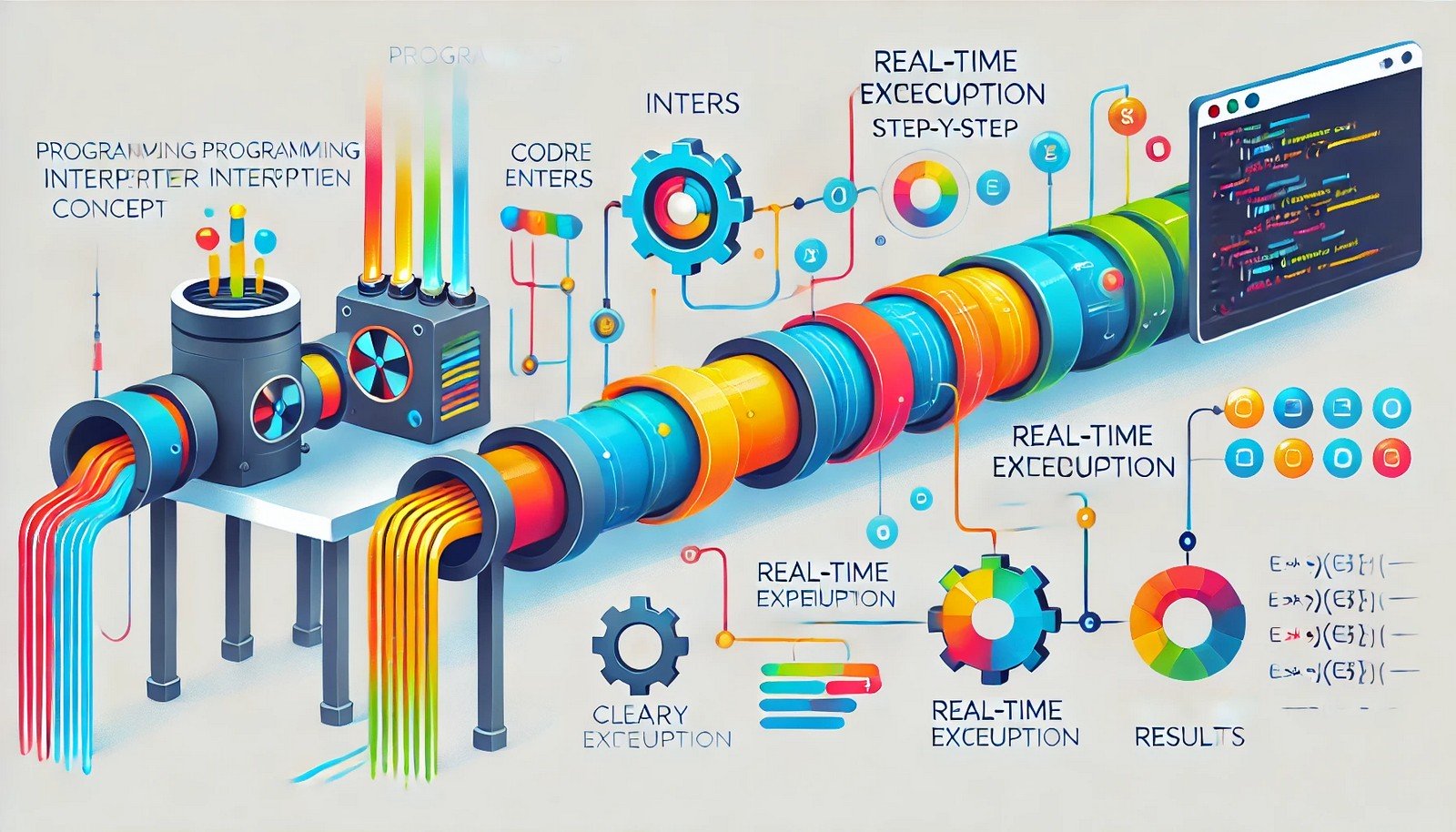Interpreter
 representational image
representational image
Quick Navigation:
- Interpreter Definition
- Interpreter Explained Easy
- Interpreter Origin
- Interpreter Etymology
- Interpreter Usage Trends
- Interpreter Usage
- Interpreter Examples in Context
- Interpreter FAQ
- Interpreter Related Words
Interpreter Definition
An interpreter is a computer program that executes instructions written in a programming or scripting language by directly translating them into machine-readable code. Unlike a compiler, which translates the entire code into machine language before execution, an interpreter processes code line by line. This allows developers to test and debug code efficiently, making interpreters essential for languages like Python, JavaScript, and Ruby. Interpreters are often slower than compiled code but are highly flexible and useful for dynamic environments.
Interpreter Explained Easy
Imagine you're playing a game where someone translates every instruction into a language you understand as you play. The game keeps going because the translator tells you what to do step by step. An interpreter is like that translator—it helps your computer understand programming languages one step at a time.
Interpreter Origin
Interpreters became popular in the 1960s when simpler programming languages were needed for education and prototyping. Early languages like BASIC utilized interpreters to make programming accessible.
Interpreter Etymology
The word "interpreter" originates from the Latin "interpretari," meaning to explain or translate.
Interpreter Usage Trends
The rise of dynamically-typed and scripting languages has brought interpreters to the forefront in the past few decades. Python, for instance, relies heavily on interpreters, contributing to its widespread use in data science, web development, and automation.
Interpreter Usage
- Formal/Technical Tagging:
- Scripting Languages
- Real-Time Execution
- Interactive Development - Typical Collocations:
- "Python interpreter"
- "real-time code execution"
- "interpreter-based debugging"
- "JavaScript interpreter"
Interpreter Examples in Context
- Developers use the Python interpreter to test new code snippets interactively.
- Web browsers contain JavaScript interpreters to execute scripts on websites.
- Students learn coding fundamentals using interpreters for languages like Ruby or BASIC.
Interpreter FAQ
- What is an interpreter in computing?
An interpreter is software that executes code line by line rather than compiling it all at once. - How does an interpreter differ from a compiler?
While a compiler translates all code into machine language before execution, an interpreter processes it line by line. - Which languages rely on interpreters?
Languages like Python, JavaScript, Ruby, and PHP use interpreters. - What are the advantages of using an interpreter?
It allows for easier debugging and interactive testing of code. - Are interpreters slower than compilers?
Yes, interpreters are generally slower because they process code at runtime. - Can interpreters be used with compiled languages?
Yes, some compiled languages offer interpreters for scripting or debugging. - What tools are used as interpreters?
Examples include the Python interpreter, Node.js for JavaScript, and REPL environments for various languages. - How do interpreters help in education?
They provide an interactive way to learn programming by giving immediate feedback. - Are interpreters only used in programming languages?
No, interpreters are also used in environments like command-line shells and calculators. - What is a famous example of an interpreted language?
Python is one of the most popular interpreted languages.
Interpreter Related Words
- Categories/Topics:
- Programming Languages
- Dynamic Execution
- Debugging Tools
Did you know?
The first high-level programming language, Fortran, initially used interpreters to make coding more accessible to scientists and engineers. This approach laid the foundation for modern interactive programming environments.
PicDictionary.com is an online dictionary in pictures. If you have questions or suggestions, please reach out to us on WhatsApp or Twitter.Authors | Arjun Vishnu | @ArjunAndVishnu

I am Vishnu. I like AI, Linux, Single Board Computers, and Cloud Computing. I create the web & video content, and I also write for popular websites.
My younger brother, Arjun handles image & video editing. Together, we run a YouTube Channel that's focused on reviewing gadgets and explaining technology.



Comments powered by CComment